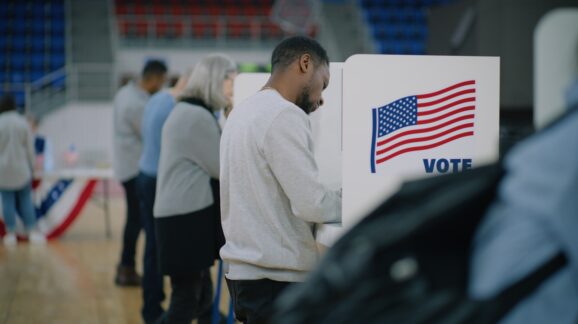Point: The Supreme Court Is Empowering Voters
For an alternate viewpoint, see “Counterpoint: Supreme Court Is Headed Further Right Next Term.”
The Supreme Court’s recent term signaled a monumental shift toward liberty as it rolled back the unchecked power of federal agencies and reaffirmed the constitutional right to jury trials. The coming fall term could prove just as significant, with critical cases on the docket poised to further limit bureaucratic overreach and restore accountability to our government.
Last term, the court delivered two significant blows to agency abuse. First, in Loper Bright, the court dismantled the assumption that unelected federal agencies can create law, reinforcing the constitutional constraint that only elected representatives in Congress have that power. Second, in Jarkesy, it upheld Americans’ right to a jury trial, rejecting the idea that agencies could serve as prosecutors, judges and juries.
This term, the court is expected to weigh in on three pivotal cases that could ensure democratic accountability. The questions are monumental: Can unelected bureaucrats prosecute individuals or establish binding rules without presidential oversight? Can Congress delegate its lawmaking power — including the authority to levy taxes — to federal agencies without direction on how much to levy? And can states fine companies for causing global climate change in foreign nations?
In Consumer Research v. Consumer Product Safety Commission, the court is asked to consider whether so-called independent agencies can operate without presidential oversight. This case clarifies the 1935 decision in Humphrey’s Executor, which allowed Congress to limit the president’s power to remove certain officials who did not exercise core executive functions. More recently, in Seila Law (2020), the court ruled that the Consumer Financial Protection Bureau’s director must be removable by the president because the agency exercises significant executive authority.
Unfortunately, lower courts have misapplied Seila Law by allowing multi-member agency boards to exercise core executive powers, such as prosecuting individuals, without presidential control. The Supreme Court now has an opportunity to correct this misinterpretation and ensure that all executive actions remain under the president’s oversight.
Another critical case is Consumer Research v. FCC, which involves the Federal Communications Commission’s authority to impose a tax through the Universal Service Fund without clear congressional guidance. The Court of Appeals for the 5th Circuit found that Congress delegated this power too broadly, allowing the FCC to require phone users to pay into a fund supposedly aimed at expanding telecommunications infrastructure but without instruction on how much to raise.
Moreover, the FCC passed this tax-setting power to a private organization (the Universal Service Administrative Company) dominated by telecommunications companies. This effectively allowed these companies to force their consumers to pay them extra and without direction on how much extra.
This unchecked delegation of tax power violates the Constitution’s principle that only Congress — the people’s elected representatives — can set tax rates. The Supreme Court should agree to hear this case and reaffirm that such power cannot be handed over to unelected bureaucrats or private entities.
A third case, Shell v. Honolulu, raises the question of whether states can sue oil companies like Shell for contributing to global climate change, even when many of the alleged actions occur outside the state or the country.
The Hawaiian city is seeking billions in damages for global warming, following in the footsteps of New York City and other municipalities that have tried to hold international corporations liable for environmental effects worldwide. However, courts nationwide have rightly rejected such claims, pointing to the Clean Air Act’s explicit prohibition against states regulating interstate emissions.
Read more at DC Journal
